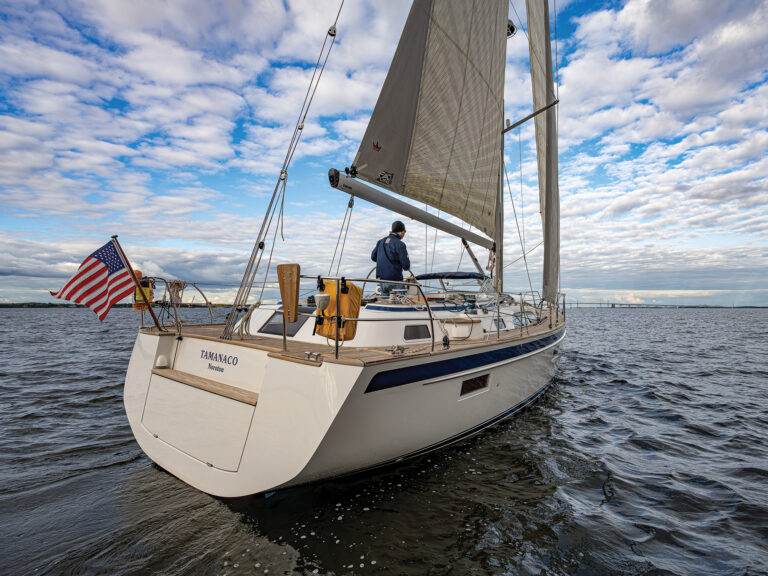Some Tips On World Provisioning
Foods the most impawtant thing on bawd when you ah makin a passage. Day to day, its the only thing that changes, declared an experienced captain from Downeast, Maine, to me before I left to cruise around the world. That Downeaster has seen his share of Atlantic crossings and deliveries, and he knew what he was talking about. What he didnt tell me was that provisioning the boat would be one of the most rewarding jobs on board, and that it would be one of my favorite tasks while cruising. The job of provisioning has a way of getting you into all kinds of adventures, especially when youre visiting an island that has no supermarkets. Often you need to devise creative ways to get food. A man in the Marquesas let me pick fruit out of trees in his backyard, while I waited as a Tongan farmer killed a pig to fill my order for a couple of pounds of bacon. And in Bali, a lady tried to sell me a handful of garden snakes for goooood soup.
Most books on provisioning will tell you how to preserve eggs by rubbing Vaseline all over them, how to make apples last by not storing them with onions, and how to varnish cans of food so they dont rust. These are interesting techniques, but I found that when it came to provisioning, there was no substitute for experience.
So here are some tips I learned from experience:
When you arrive in port, before provisioning, ask other cruisers and get their tips. They’ll know where the best market is and where you can find the best bargains. For instance, in French Polynesia, items with a red sticker on them are less expensive because they are subsidized by the government.
Provision big when you’re in a good provisioning port. Stock up on non-perishables you use frequently, such as zipper-lock bags, toilet paper, soda, beer, and wine.
AdvertisementBuy fruits and vegetables at all stages of ripeness. For instance, start a passage with tomatoes that are ready to eat and others that are green and will be ripe in 5 days.
If you can’t find what you need, don’t be afraid to ask around. People will often be willing to sell you things out of their gardens. One time, I couldn’t find flour, so I brought a container to a bakery and they filled it with flour for me.
In many places, markets will deliver your provisions to the harbor for you. Ask before you shop, to give them a chance to be ready for you. And don’t forget to tip the bag boys when they help you with the bags, if that is the custom. In many places, tips are the only money they make.
AdvertisementTo know how much food to buy, think in terms of how many breakfasts, lunches, and dinners you’ll need on a passage, and plan to have enough food on board if the passage takes longer than you think.
STORAGETupperware — you can’t have enough of it. Use it to store flour, sugar, baking goods, crackers, chips, and leftovers. It keeps food fresh and it keeps other things out.
Hang a fruit hammock in the cabin. Fruit and veggies will last longest when they get air flow. The hammock should be well-mounted and positioned parallel to the centerline of the boat to swing athwartships when you’re heeled over.
AdvertisementCome up with a system for storing pots and pans so they don’t rattle. There’s nothing like being kept up by a pot that clanks back and forth every time the boat moves.
Bring along extra bottles for storing liquid. Laundry detergent is often sold in foil bags, which cannot be resealed. Spare water bottles are also handy.
When storing provisions, remove everything from its box, such as cereal and crackers. The bags will take up less space, and insects like to lay their eggs in boxes.
Rotate stored foods periodically, bringing the older cans and dry goods to the front. This will help you keep track of what you have, and will insure that you won’t lose food due to rusty cans or salt water rot.







